Media
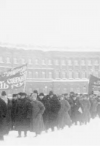
Left Intellectuals in Yugoslavia, 1988–90
Throughout Eastern Europe, there was an unleashing of pent-up questions, hopes, and fears brewing for decades. There was a sense that the ground was trembling underneath these experiments in socialism. It was clear to most of us that socialism could only survive through radical democratization. | more…
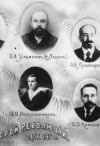
For a century, the counterrevolutionary reaction to the events of October 1917 has arguably been the most determining ideological factor in Western politics. Today the victory of that counterrevolution is complete, but Western powers still need their inherited antithesis, in changing form, as self-justification. | more…
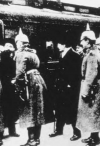
The New York Times, 1917–2017
Mainstream media outlets have recently expressed their dismay over the rise and spread of “fake news,” taking it as an obvious truth that what they themselves provide is straightforward, unbiased, fact-based reporting. They do offer such news, but they also provide a steady flow of false or misleading information, often supplied by the national security state, other branches of government, and sites of corporate power. | more…

Rethinking 1984 and Brave New World
With the rise of Donald Trump, U.S. politics has descended, like never before, into a theater of the absurd. Unbridled anti-intellectualism, deception, and “vindictive chaos” recall a morally reprehensible past in the guise of “making America great again.” But despite his populist posturing, Trump’s contempt for democratic processes is matched by his commitment to economic policies that favor the financial elite. | more…

In an idyllic canyon near Santiago, a group of twelve women were electric with emotion from sharing personal stories and experiences, and, of course, from singing. Deep bonds were forged among participants, few of whom knew each other prior to the workshop. They were there to compose women-identified songs in a setting that alternated between individual and group composition. | more…

Miroslav Krleža was a giant of Yugoslav literature, yet remarkably little of his writing has appeared in English. In a body of work that spans more than five dozen books, including novels, short stories, plays, poetry, and essays, Krleža steadfastly pursued a radical humanism and artistic integrity. Harbors Rich in Ships gives English-speaking readers an unprecedented opportunity to appreciate the astonishing breadth of Krleža’s literary creations. Beautifully translated by Željko Cipriš, this collection of seven representative early texts introduces a new audience to three stories from Krleža’s renowned antimilitarist book, The Croatian God Mars; an autobiographical sketch; a one-act play; a story from his collection of short stories, One Thousand and One Deaths; and his signature drama, The Glembays, a satirical account of the crime-ridden origins of one of Zageb’s most aristocratic families. | more…

While the political conflicts and social ramifications of public school reform are well known, basic questions about the movement remain underexamined. Who really leads it? What are their motives? We need a deeper understanding of this movement, its drivers, and its underlying aims. | more…
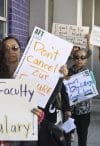
Organized Labor and the Crisis at City College of San Francisco
How did a community college that had managed to serve and retain most of its student population and remain fiscally sound amid a recession and a budget crisis become the target of condemnation by accrediting authorities? The answer involves a disastrous collision of corporate education reform, administrative arrogance, and timid, undemocratic union leadership. | more…

Richard Seymour interviewed by Michael D. Yates
There is a degree of unpredictability in politics today that presents opportunities for those who aren’t too constrained by past experience to see them. We’re seeing the possibility of regenerating a left that has previously been ground down to the scale of atoms, one that, if it adapts creatively to the coming defeats, can prepare the ground for success. But that means recognizing that the history of the left is a history of defeats; it is a history of the vanquished. | more…
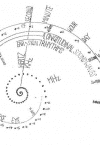
The Social Relations of Space Travel
As astronauts penetrate ever further into the cosmos, how are their bodies and subjectivities being transformed? While space travel remains governed by mechanisms of power and domination that tend to treat astronauts as tools, the practice of “space medicine” is now beginning to interact with astronauts’ bodies in a more multidirectional, dialectical fashion. | more…

Marge Piercy is the author of many books of poetry, most recently Made in Detroit: Poems. | more…
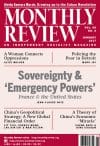
Shortly after the election of Donald Trump, the alt-right organization Turning Point USA introduced its notorious Professor Watchlist…, listing some 200 radical academics in the universities as dangerous professors. Stories regarding this list were soon being carried in major papers throughout the country. In contrast to David Horowitz’s list of “the 101 most dangerous academics in America” a decade ago, the current Professor Watchlist has behind it the new sense of power on the extreme right provided by Trump’s electoral victory.… There can be no doubt that this is part of an attempted new McCarthyism. In terms of its overall orientation, the alt-right strategy here resembles the Gleichschaltung (“bringing into line”) in 1933–35 in Hitler’s Germany, where intimidation was directed at all the major cultural institutions, including universities, with the object of getting them to align with the new dominant views. | more…











